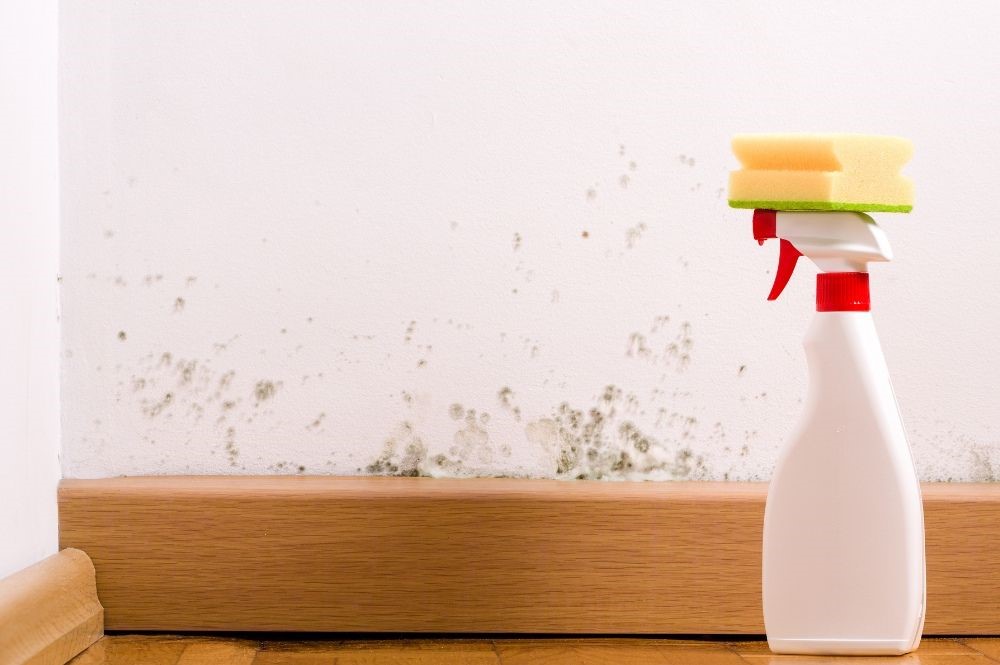Following a rise in reports of mould and damp as a result of national media coverage about the problem, Horsham District Council is issuing advice to help residents.
Condensation is one of the most common causes of mould growth and it is caused by a combination of excess moisture in the air and poor ventilation in homes.
At this time of year as the weather gets colder, some people will start to see an increase in the amount of condensation forming around their homes. A family of four can add the equivalent of 30 – 40 litres of water a week just by breathing. Showering, cooking and bathing can add up 20 more litres; drying clothes inside can add an additional 10 to 15 litres.
Condensation typically occurs when warm, moist air meets cold surfaces. A build-up of condensation can lead to black mould forming, which is unsightly and, in large quantities, may impact on the health of vulnerable people.
In order to keep on top of condensation it is important to let warm moist air out regularly, and this can be done by controlling ventilation and air circulation.
Some of the top tips to avoid the build-up of mould include:
- In bathrooms use mechanical extraction fans, allowing them to run for at least 20 minutes after bathing or showering, and open the windows if safe to do so. A ‘squidgee’ is a great way of clearing moisture away from hard surfaces like tiles, shower screens and windows. Dry any wet surfaces with a cloth that can be squeezed out. Putting a small amount of cold water in the bath before adding hot drastically reduces steam.
- In the kitchen make use of extractor fans and windows. Placing lids on saucepans will not only speed up cooking times, but also reduce steam and moisture going into your home.
- As the weather cools down, drying clothes inside becomes more common. Give clothes an extra spin in the washing machine to enable quicker drying times. If you’re using an airer, position it in a room where you can close the door and open the window, then open the window for a short time.
- Keep a small gap between large items of furniture like wardrobes and beds to allow warm air to circulate and try not to overfill cupboards.
- Whilst energy bills are a concern, maintaining an even temperature, ideally above 15oC throughout your home will help prevent condensation build up. Warmer temperatures are recommended for living spaces. If you are concerned about energy costs, please see the Council’s energy saving pages for the latest information.
- If you find black mould developing use diluted bleach to wipe it away. It is recommended to wear gloves and mask to protect yourself whilst you clean up mould. Bicarbonate of soda can be used to tackle mould growth on soft furnishings or natural products like suede or leather.
- If you rent your home, and after following this advice you still have a lot of condensation and black mould, you should report this to your landlord.
Commenting on the problem and how it can lead to adverse health conditions, Horsham District Council Cabinet Member for Environment, Recycling and Waste Cllr Jay Mercer said:
When condensation is left to accumulate it can cause problems in your homes, and if black mould develops in large amounts it can aggravate existing respiratory health conditions.
“As the colder weather is now upon us, it is better to take action now to prevent excessive amounts of condensation forming.
“If you are living in rented accommodation and have tried to reduce it, and your landlord does not respond to your concerns, please do contact our Environmental Health Private Sector Housing team for further advice.”
You can email us at: publichealth.licensing@horsham.gov.uk or call us on 01403 215641.
Alternatively, more information is available on the Council website or via the charity Shelter.
For help with improving insulation, other offers and energy saving advice please see our webpage Save money on your energy bills.

